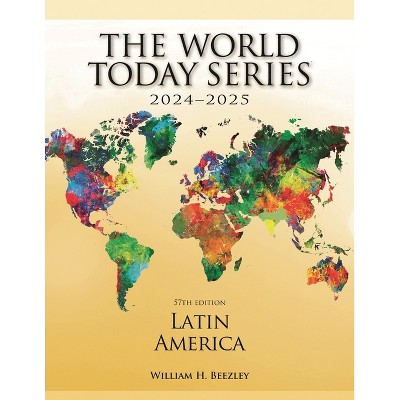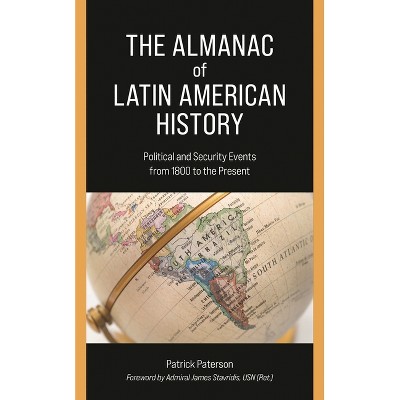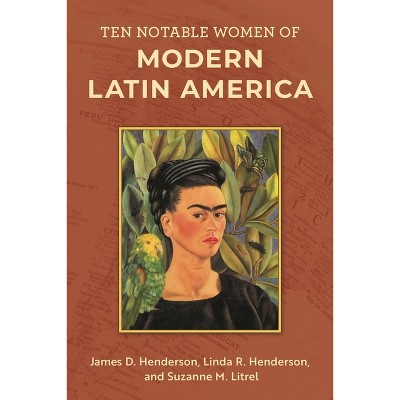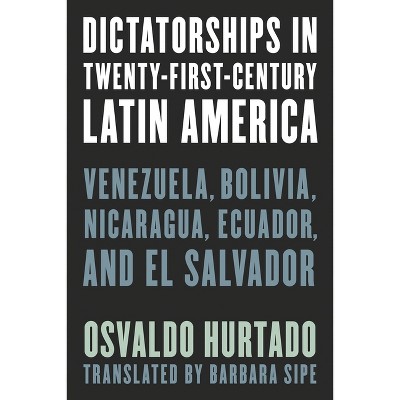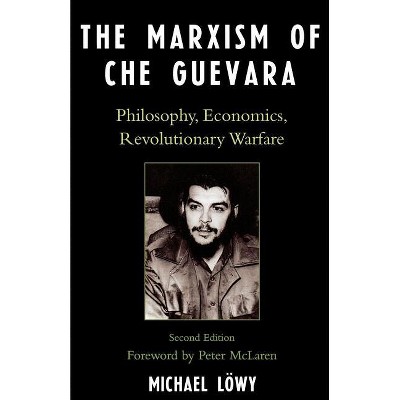Sponsored

Labor of Extraction in Latin America - (Latin American Perspectives in the Classroom) by Kristin Ciupa & Jeffery R Webber (Paperback)
In Stock
Sponsored
About this item
Highlights
- Natural resource extraction and primary commodity export remain persistent features of the Latin American economy.
- About the Author: Kristin Ciupa is an assistant professor of sociology at the University of Regina.
- 268 Pages
- Business + Money Management, Development
- Series Name: Latin American Perspectives in the Classroom
Description
About the Book
Natural resource extraction and primary commodity export remain persistent features of the Latin American economy. This book investigates the power of labor in extractive sectors starting in the 1980s. It shows how labor shapes national export sectors, economies, politics, and...Book Synopsis
Natural resource extraction and primary commodity export remain persistent features of the Latin American economy. This book investigates the power of labor in extractive sectors starting in the 1980s. It shows how labor shapes national export sectors, economies, politics, and societies more broadly, and resists extractivism through organizing.
Review Quotes
In the abundant recent scholarship on Latin America's extractive export economies, the labor required to harvest those exports has been curiously overlooked. This pathbreaking volume shows how we can integrate an analysis of extractive labor with the currently more popular lenses of ecology and social reproduction.
This book demonstrates that the expansion of natural resource extraction not only comes at a price for rural communities, the environment, and Latin American economies. It also comes at a cost for workers who labor in those extractive industries. It shows how export workers in strategic sectors occupy a crucial place for building broad-based anti-capitalist movements in Latin America. The Labor of Extraction in Latin America analyzes the very struggles that are central to the future of Latin America and the world.
This book takes on the hugely important task of bringing the workers back in to the study of extractive accumulation in Latin America. With a comprehensive theoretical framework and detailed case studies that both mobilize and extend it, this volume lays out an exciting new research agenda for the study of Latin American political economy.
This edited collection contextualizes the current production of extractive labor in Latin America due to the political, historical, social, and economic effects of neoliberal policies and geopolitics. According to the editors, "The main objective of this edited collection is to inaugurate a research agenda aimed at filling an enormous gap concerning the question of labor in the extant literature on extractivism in Latin America" (p. 4). The editors organized this collection into five critical sections, bringing together 11 scholars. The writers challenge capitalist and neoliberal scholarship on the political status of 21st-century labor production in Latin America. Each chapter provides a strong, in-depth review and analysis, including theoretical frameworks that are critical for understanding extraction in modern Latin American labor production. This critical book will result in major contributions to future scholarship on this important subject. Every library should obtain a copy for their Latin American and labor collections. Highly recommended. Advanced undergraduates through faculty.
About the Author
Kristin Ciupa is an assistant professor of sociology at the University of Regina. She is the author of The Political Economy of Oil in Venezuela: Class Conflict, the State, and the World Market.
Jeffery R. Webber is a professor of politics at York University, Toronto. He is the author or co-author of five books, and co-editor of two books. Most recently, he is co-author of The Impasse of the Latin American Left.
Shipping details
Return details
Trending Non-Fiction













